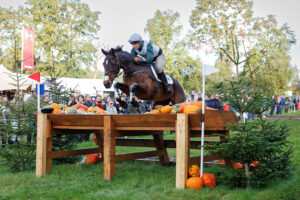EIA Confirmed in British Columbia Horse

The affected horse was acquired within the last 18 months from the packhorse/guiding industry, which has experienced previous EIA cases. The horse’s owner requested an accredited veterinarian test the horse due to clinical signs of EIA it was exhibiting.
CFIA is investigating and has placed movement controls on the affected horse and all other horses on the premises that came into contact with it. Quarantine will remain in effect until disease response protocols are complete, including follow-up testing and ordering the destruction of confirmed cases. Trace-out activities may result in actions at additional premises.
CFIA has strongly recommended improved biosecurity procedures to prevent the spread of EIA.
About EIA
Equine infectious anemia is a viral disease that attacks horses’ immune systems. The virus is transmitted through the exchange of body fluids from an infected to an uninfected animal, often by blood-feeding insects such as horseflies. It can also be transmitted through the use of blood-contaminated instruments or needles.
A Coggins test screens horses’ blood for antibodies that are indicative of the presence of the EIA virus. Most U.S. states require horses to have proof of a negative Coggins test to travel across state lines.
Once an animal is infected with EIA, it is infected for life and can be a reservoir for the spread of disease. Not all horses show signs of disease, but those that do can exhibit:
- Progressive condition loss;
- Muscle weakness;
- Poor stamina;
- Fever;
- Depression; and
- Anemia.
EIA has no vaccine and no cure. A horse diagnosed with the disease dies, is euthanized, or must be placed under extremely strict quarantine conditions (at least 200 yards away from unaffected equids) for the rest of his life.
Related Articles
Stay on top of the most recent Horse Health news with


















